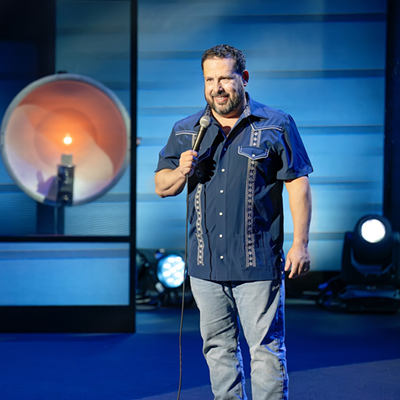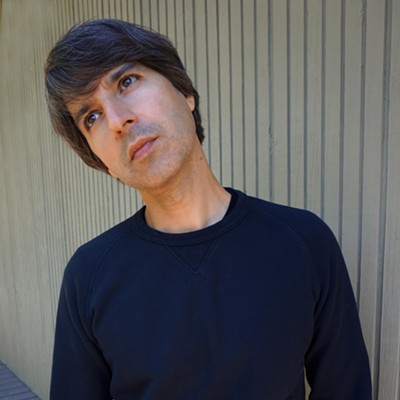Take a handful of conservatory-trained musicians well-versed in the vocabulary of classical and jazz music. Then add a healthy interest in 1980s hard rock; a respect for the timeless tradition of punk experimentalism; and an abiding faith in contemporary Americana.
What do you get? The dramatic, sometimes psychedelic and always moving indie-rock of Danish band Alcoholic Faith Mission.
On its first major North American tour, Alcoholic Faith Mission will make its Tucson debut this Saturday, May 19, at Plush. Although the group's members live in or around Copenhagen, Alcoholic Faith Mission began—in a way—in the United States.
In 2005, singer-songwriter Thorben Seierø Jensen and bassist Sune Sølund, who are former high-school buddies, were on an extended trip through the U.S. and spent a few months in New York City. While strolling through Brooklyn, they stumbled across a church named the Apostolic Faith Mission, and recent discussions about alcoholic acquaintances led to a play on words.
"The two of us had been playing around with some new music, and we thought it would be a pretty cool band name," Jensen said by phone from Seattle on a rare day off between gigs.
Back in Denmark, they recorded the band's first album, a lo-fi affair, on a laptop in Jensen's bedroom. "It was just the two of us, and then pretty soon, Kristine and the others started joining in."
The band now is a sextet, including Kristine Permild (who provides the cool feminine vocal counterpoint to Jensen), Anders Hjort, Gustav Rasmussen and Morten Hyldahl.
Alcoholic Faith Mission has released four albums—three of them available in the U.S.—the most recent of which, Ask Me This, was released this year.
Some critics have lumped in Alcoholic Faith Mission with the musical movement lazily dubbed "sadcore," a blatant example of reductionism that does the band's music a disservice.
On Ask Me This, the orchestral combination of indie pop and progressive rock is emotionally cathartic, hinting at a diverse range of influences, from Philip Glass and the minimalist school of composers to medieval choral music and electro-pop, from Kate Bush to Wilco. Some have compared the results to contemporary rock collectives such as Arcade Fire, Stereolab, Do Make Say Think, Broken Social Scene and Dungen.
As for Jensen, he thinks the perfect ingredients in an Alcoholic Faith Mission song are as follows: "It's a strong beat. It's kind of a beat with a twist, a bit quirky. I like to think that a strong hook line or melody might make it in there a couple of times, something that mixes things up a bit, takes you a bit off-kilter."
He acknowledges that catharsis and melancholy have a lot to do with the music of Alcoholic Faith Mission, but said it also contains elements of humor and irony.
"I write the lyrics, and they are a bit of a release for me. Some of them reflect things that happen in my life, but are maybe not repeated verbatim, or they reflect what interests me in the lives of some of the other people I see around me. And there is a lot of melancholy, as there is in most Scandinavian music, probably because it is always so dark all the time, you know?"
He cites the ultimate Scandinavian band, Sweden's ABBA, as a good example. "I know, you might call it disco or high-gloss pop or whatever, but whether you like it or not, what saves ABBA's music is that undercurrent of melancholy. If it hadn't been there, it would have come off as really cheesy, but as a result, it somehow has weight."
On tour with Alcoholic Faith Mission is the Boston-based indie-rock band You Won't. The bands share the same label, Old Flame Records, which released You Won't's debut album, Skeptic Goodbye, last year.
"They're really sweet guys," Jensen said of You Won't. "And they do some really interesting stuff. The last couple of shows, we have been going onstage to play a song with them."
Jensen isn't sure what the future holds for Alcoholic Faith Mission, but he hopes it includes "sex, power and money."
"Actually, it would be nice if we can continue to do what we do now, and maybe quit our part-time jobs back home."









